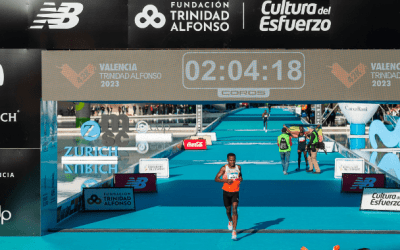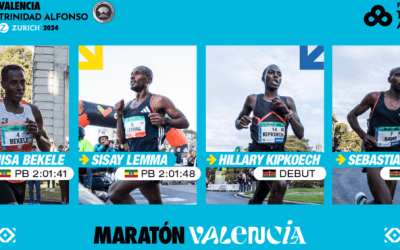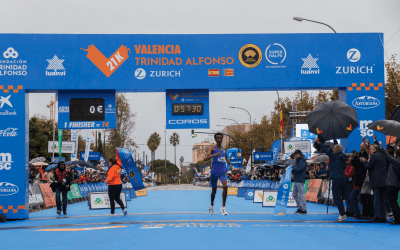Long runs are the foundation of any training plan, whether for 5K, 10K, half marathon, or marathon races. However, it's not just about accumulating distance; it's about structuring the session to build endurance, improve technique, and prepare the body for the fatigue...
Results Life Time Miami Marathon & Half 2025: A Top Event for Latin American Runners
This Sunday, February 2, another edition of one of the best marathons for Latinos in the United States, the Life Time Miami Marathon & Half 2025, took place. The event featured 18,500 runners from the U.S. and 75 countries, with Colombia standing out with 2,456...
TCS New York City Marathon 2025: How to Enter
The TCS New York City Marathon 2025 attracts diverse runners from the New York City area and worldwide. One of the most common ways to participate is through a non-guaranteed entry lottery, which helps maintain the race’s diversity. For example, in the 2023 marathon,...
Record $36 Million Raised for Charity at the 2024 Bank of America Chicago Marathon
Runners Can Secure an Entry into the Sold-Out 2025 Event by Running and Fundraising for Charity CHICAGO – The Bank of America Chicago Marathon announced today that 2024 participants raised $36 million for local, national, and global nonprofits, the highest fundraising...
Conquering the Half Marathon: How to Prepare and Succeed While Running
Running a half marathon is an exciting challenge that requires discipline, training, and proper planning. Whether you're just starting or are an avid runner, the preparation for 13.1 miles can be quite rewarding. This guide will help you navigate the process of...
Doha Marathon 2025 Results
The 13th edition of the Ooredoo Doha Marathon took place on January 17, 2025. The largest in its history, the event brought together over 15,000 runners. This race holds the Gold Label status from World Athletics. The starting time was 5:00 a.m. due to the city's warm...
Must-Have Running Apps for Tracking Efficiency & Health
Must-Have Running Apps for Tracking Efficiency & Health With the technological growth in different sectors, our lives have become easier and more convenient. These days there are apps and technology for everything. Plus, while it may seem as if maintaining a...
Sebastian Sawe debuts and wins the 2024 Valencia Marathon
Debutant Sabastian Sawe won the Valencia Trinidad Alfonso Zurich Marathon, organized by SD Correcaminos and the Valencia City Council, today with a time of 2:02:05. This also became the best time of the year, taking it from Tokyo (2:02:16). Remember that Sabastian...
Debutants party at the Valencia Marathon 2024?
One of the most eagerly awaited days in the world marathon scene has arrived; after the tough ordeal suffered exactly one month ago, this Sunday, December 1st is the moment of solidarity and the illusion of a whole city overturned with the 35,000 participants who will...
Lemma, Bekele and Beriso return to Valencia Marathon 2024
The Trinidad Alfonso Zurich Valencia Marathon confirms the main names of the international elite that will arrive in Valencia with the intention of remaining among the fastest marathons in the world. The race, organized by SD Correcaminos and the Valencia City...
6,700 athletes take part in the 2024 Boston Half
BOSTON—The 2024 Boston Half presented by Dana-Farber Cancer Institute and the Jimmy Fund took place today under beautiful blue skies, starting and finishing in Boston’s Franklin Park. A total of 6,767 athletes started today’s race, and preliminary...
New Men’s World Record at the 2024 Valencia Half Marathon
Yomif Kejelcha stops the clock at 57:30, one second faster than the previous WR. Agnes Ngetich has achieved the second-fastest time in history in the women's race. The Valencia Trinidad Alfonso Zurich Half Marathon once again holds the two best historical records for...


Plan to improve times in 5 kilometers (12 weeks)

Training Plan to finish 21K (12 weeks)

8-Week 10K Running Plan for Beginners

5K Running Plan for Beginners (8 Weeks)
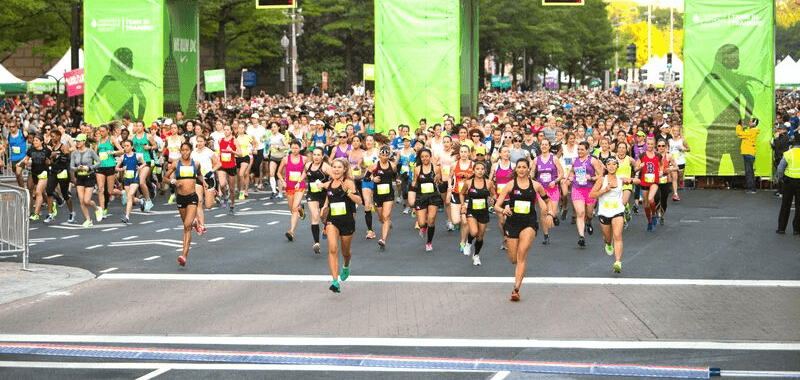
Training for the first 42 km marathon (20 weeks)

Speed routines to run 10K in less than 60 minutes

